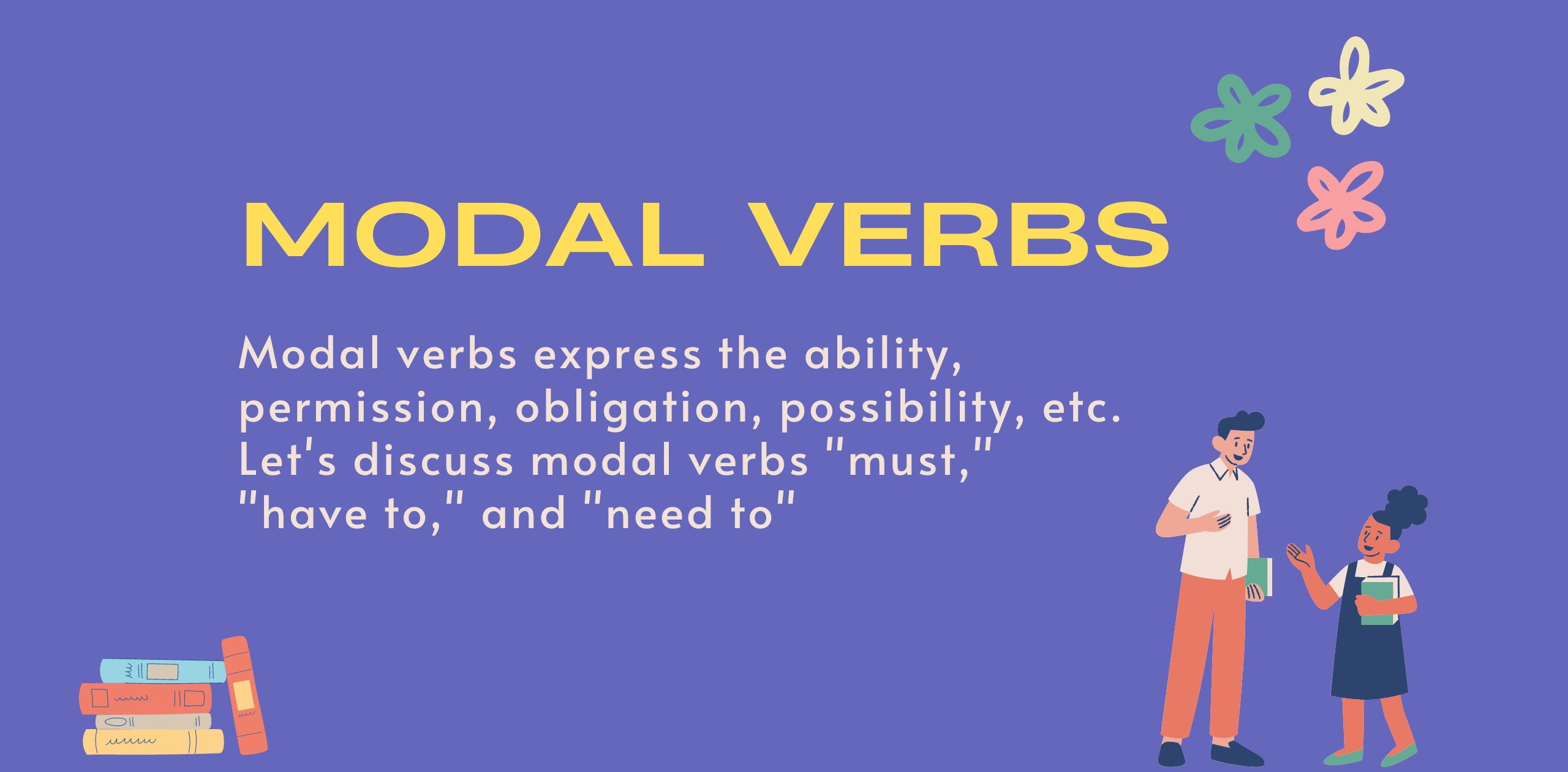CONTENT

Modal verbs in English grammar express the ability, permission, obligation, possibility, etc. Modal verbs only have one form, meaning that they are used in simple present and don't have past simple and past participle forms.
However, some modal verbs can have alternative forms which can be used in different tenses.
Example
Explanation
I must not tell lies.
Must not is used to express a strong obligation not to do something imposed by someone else.
You have to do your homework.
Have to is used to express a general rule.
You need to finish this essay before tomorrow.
Need to is used to express that something is important for you to do.
Obligation
Rule 1: We can use must to express that something is necessary and give advice or an order in a strong way. Usually, such an obligation is imposed by the speaker.
Example
Explanation
Her father says, "You must be in bed by 10pm."
Must is used to express an obligation to be in bed by 10pm imposed by the father.
Rule 2: We can use mustn't - contraction of must + not - to express that something is forbidden or not allowed.
Example
Explanation
You mustn't stay up too late.
Mustn't is used to express that it is not allowed to stay up too late.
Rule 3: We can use have to to express a general obligation (such as rules or laws) or an obligation in the past or future.
Example
Explanation
You have to go to school because you are still young. I had to go to school when I was your age, too.
Have to is used to express general obligation, while had to is used to describe an obligation that took place in the past.
Rule 4: We can use need to to express that something is important for you to do, but rather at a given moment than as a reoccurring action (such as responsibility or duty).
Example
Explanation
She needs to visit her parents this weekend.
Needs to is used to clarify that this action is important one time, this weekend.
Rule 5: We can use need not to and don't have to if there is no obligation at all. Don't have to is the contraction of do + not + have to.
Example
Explanation
You don't have to worry about this anymore, we're done with all exams already.
Don't have to is used to express that there is no obligation, no need to worry.
Learn English with Langster
Deduction
Rule 6: We can use must to express that something is true in the present, and we are 100% sure about it.
Example
Explanation
You must be Cindy, we've met at another party week ago.
Must is used to express that the speaker is 100% that the other person's name is Cindy because they've already met before.
Rule 7: We can use must + have + past participle to speculate about something in the past.
Example
Explanation
She must have worked so hard to get this promotion.
Must have worked is used to speculate about her work in the past.
Quiz
1/4
Choose the correct modal verb to complete the sentence: Private property. No entry. You ___ entry.
0
correct answers.





